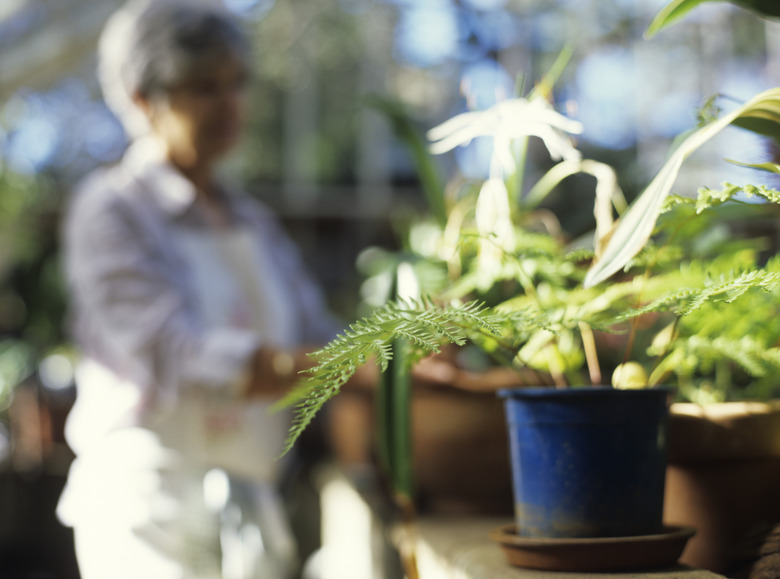How To Use Hydrogen Peroxide To Kill Powdery Mildew
Things Needed
-
Sharp scissors or pruning shears
-
Gallon-sized spray bottle
-
Hydrogen peroxide
Tip
When trimming infected plant foliage, don't let the pruned stems and leaves touch uninfected plants.
Hydrogen peroxide works by oxidizing the mildew cells and killing them over time.
Warning
Hydrogen peroxide may take longer to kill powdery mildew than commercial mildewcide chemicals, but it is all-natural and inexpensive.
Powdery mildew doesn't just give your plant's foliage a dusty white look; it can stress and kill your plants if it's not controlled. Caused by fungal spores, the mildew can quickly spread from infected plants to the plants beside it. Although powdery mildew can be controlled quickly and effectively with commercial garden mildewcides, those interested in natural home remedies can mix their own mildewcide from over-the-counter hydrogen peroxide.
Step 1
Remove any heavily infested plant foliage and stems that have wilted because of the powdery mildew. Cut off the foliage with a sharp pair of scissors or garden shears and discard them in a sealed plastic bag. Do not shake the foliage, in order to avoid spreading the mildew's spores.
Step 2
Pour a quart of standard 3 percent-strength hydrogen peroxide–available from most drugstores–into a gallon-sized spray bottle. Add three quarts of water and shake the spray bottle to mix its contents thoroughly. If you're using a bigger or smaller bottle, adjust the measurements so you're mixing one part hydrogen peroxide and three parts water.
Step 3
Mist the hydrogen peroxide onto your plants, focusing on areas that have powdery mildew growth. Coat the foliage until there's so much moisture that it beads and drips off of the leaves.
Step 4
Repeat the hydrogen peroxide application once daily until the powdery mildew problem subsides. Then, apply it as needed to control any new powdery mildew growth.
References
- "What's Wrong With My Plant? (And How Do I Fix It?)"; David Deardorff and Kathryn Wadsworth; 2009
- "The Organic Gardener's Handbook of Natural Insect and Disease Control"; Barbara Ellis and Fern Bradley; 1996
